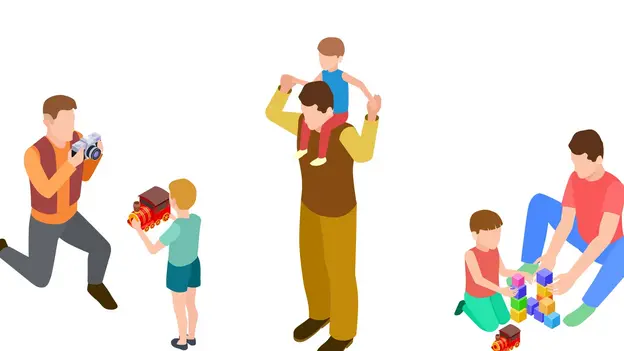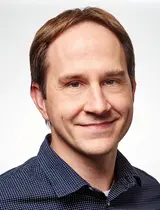Berlin Project
Arab-German Perspectives on Fatherhood in Berlin
Empirical Study
While our personal understanding of fatherhood, motherhood and parenthood is closely connected to our own upbringing and the experiences made in childhood, it is also strongly related to our immediate environment – family, friends, the place we live in and the debates we engage in. In public as well as academic discourse, new understandings of fatherhood draw increasing attention. Berlin offers a rich diversity of role models for fatherhood with the understanding of fatherhood in its large Arabic speaking community being a rather understudied field of interest. In an effort to gain new perspectives on fatherhood, this study investigates the diverse understandings of being a father among those who have recently migrated from Arabic speaking countries and now live in Berlin.
AGYA members Prof. Dr. Sascha Hein and Prof. Dr. Hiba N. Rajha scrutinize the relationship between different facets of paternal engagement and indicators of family dynamics, setting the focus on families that recently migrated to Berlin. With this focus, the project partners analyse how fathers in these families relate their experiences of migration, adaptation, as well as experiences of cultural difference and commonality to their understanding of fatherhood. The analysis evolves around the following questions: In what way, if any, is their current conception of fatherhood deviating from their own upbringing? How did moving to Berlin affect fathers in their understanding of fatherhood and in their relationship to the family? In their role as a father in Berlin, what forms of discrimination and racism did they experience and how did these affect their view on fatherhood?
Being a parent in Berlin
With the focus of the analysis lying on fatherhood, the surveys and interviews are conducted in a family setting in order to also include mothers’ perspectives on fatherhood. At the core of this research project stands the systematic evaluation of the parenting program ‘Families Make the Difference’ (FMD/IRC), which the International Refugee Council Germany conducts in Berlin. Participants are parents, who have predominantly migrated from Syria in recent years. They meet in groups sorted by the children’s age and discuss topics like stress management for children, conflict management and general stress in the family due to the pandemic or other external factors. The course curriculum offers space to address their individual and family needs.
It is a novel approach to scientifically accompany the participants of this parenting program throughout the course. Self-report questionnaires before and after participation in the parenting program will be collected from a total of 120 mothers and fathers. The questionnaires focus on father engagement in relation to family well-being, experiences of stress and coping, social support, empowerment and (co-)parenting behaviour. In addition, 40 in-depth interviews are conducted with fathers partaking in the parental courses. The focus of the interview questions lie on becoming and being a parent in Berlin, family activities and responsibilities, experiences of migration to Berlin, role expectations related to child-rearing, cultural values, traditions, intergenerational aspects of fatherhood, experiences of stress and discrimination and sources of support in Berlin.
Perspectives on fatherhood in Arab countries
Furthermore, a comprehensive review of the scientific and parenting literature on father engagement in families based in Arabic speaking countries will be coordinated by Hiba N. Rajha and her team in Beirut, comparing conceptual frameworks for understanding paternal engagement. Through this multi-layered research approach, the project therefore allows unique insights into understudied perspectives on fatherhood.
The project partners make the research outcomes available for a broader audience by organizing a conference with experts and interested stakeholders to discuss the results and reflect on the methods and challenging dimensions of the research as well as recommendations drawn from the research.
- Disciplines Involved
- Education, Psychology, Sociology
- Cooperation Partners
- Freie Universität Berlin, Germany
- International Rescue Committee (IRC), Germany
- Berlin Social Science Center (WZB), Germany
- Funding Partner
- Berlin Senate Department for Science, Health and Care
- Affiliated Project
- Digitising Intangible Heritage: Sounds of Siwa
- Project Title
- More than breadwinners: Arab-German perspectives on fatherhood in Berlin
- Year
- 2022 - 2023
- Funding Scheme
- Berlin Project
- Countries Involved
- Germany, Lebanon, Syrian Arab Republic
- AGYA Publication
- Pilot Evaluation of the Families Make the Difference Parenting Program With Arab Families Residing in Berlin, Germany


